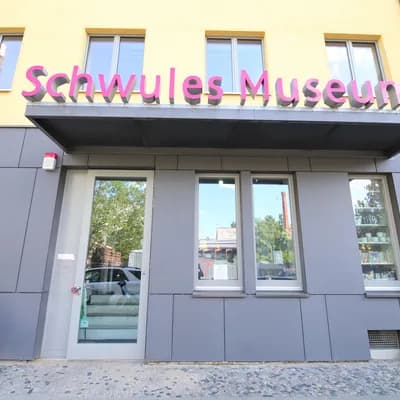
AIDS Garden Chicago
The AIDS Garden Chicago is a significant place that serves both as a memorial for the HIV/AIDS crisis and a celebration of life and the fight against this epidemic. This approximately 1-acre park stretches along the picturesque Lake Michigan and is located south of Belmont Harbor, where the historic gathering place Belmont Rocks once stood. The garden is particularly marked by the iconic artist and activist Keith Haring, whose impressive sculpture "Self-Portrait" serves as a central element here.
Historical Significance
The roots of the AIDS Garden Chicago run deep in the history of the LGBT community. In the 1960s and 1990s, Belmont Rocks was an important meeting point where people gathered to celebrate their identity and express political messages. This historic site became a symbol of freedom and resistance during the epidemic. Although the Rocks themselves were removed in 2003, this place remains a memory of the struggles and celebrations of the past that left a deep impact on the community.
The Garden and Its Features
Opened in June 2022, the AIDS Garden Chicago is not an ordinary park. It is a "park with purpose" that serves not only for recreation but also as a place for reflection, education, and community. Numerous retreats are found here, filled with information about the history of the HIV/AIDS crisis. The selection of plants and trees contributes to creating a peaceful atmosphere, while paved paths lead visitors through various thematic zones. In a specially designed Ginkgo grove, visitors can pause and reflect on the significance of the place.
Notable Works of Art
A standout feature of this garden is the monumental statue "Self-Portrait" by Keith Haring, towering at 9 meters and captivating visitors. It embodies Haring's commitment to life and art, as well as his support for AIDS awareness. The statue stands not only as a work of art but as a powerful symbol of solidarity and hope for the community.
Culture and Community
The AIDS Garden Chicago is more than just a park; it is a vibrant gathering place. The clear design enables the LGBT community to come together, celebrate, and reflect on history. The garden also features contemporary art installations that are showcased alongside one another and utilizes QR codes along the paths to provide additional information about the past and the fight against HIV/AIDS.
Costs and Visiting
Entry to the AIDS Garden Chicago is free, making it an inviting destination for all. A visit offers the opportunity to not only enjoy the art and nature but also to learn more about the history and legacy of the HIV/AIDS movement. Visitors can picnic in the garden, relax, and enjoy the fresh air by Lake Michigan.
Reviews
Visitor feedback is overwhelmingly positive. Many appreciate the calm and beautiful setting of the park, which is perfect for gatherings with friends and family. Users highlight that the garden serves both as a memorial during the HIV/AIDS crisis and as a relaxing place for outdoor activities. The QR codes left behind are regarded as enriching, providing insights into the stories and experiences of the past that are often deeply moving.
Overall, the AIDS Garden Chicago is an inspiring destination that preserves the legacy of the past while offering a space for future generations to gather and celebrate. A place of remembrance, learning, and hope awaits you, right where the water meets the shore.
For more information, visit the official website: AIDS Garden Chicago.

NYC AIDS Memorial Park at St. Vincent's Triangle

Indiana AIDS Memorial

The Legacy Walk

National AIDS Memorial Grove

Sitges Pride Gay Village

Berlin's Queer Nightlife Tips - TravelM Style

Hamburg: Winter Pride 2024

Pink Christmas 2024 in Munich

The Best LGBTIQ* Christmas Markets 2024

Washington Capital Pride 2024 Total Radical

Art and Culinary - Gallery-like Gourmet Temples Around the Globe







